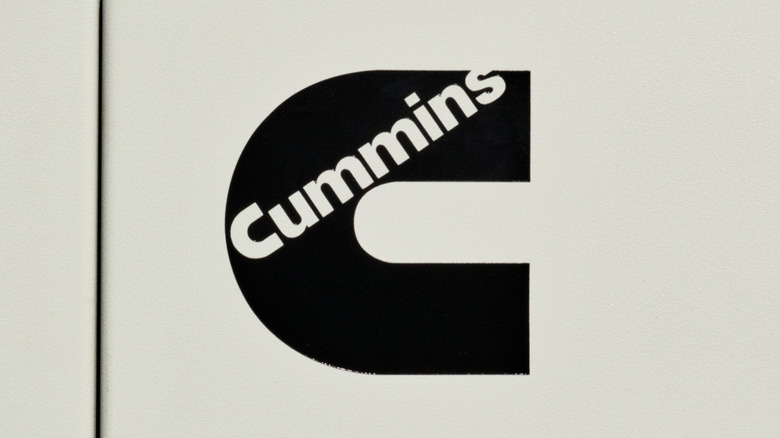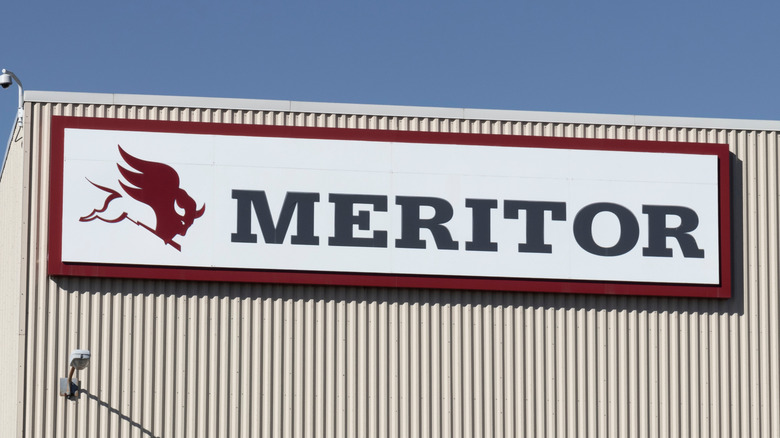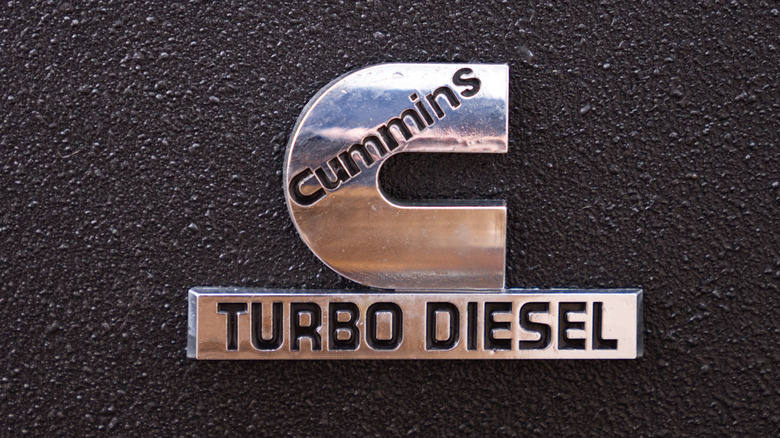Why Cummins Bought Meritor: The Companies' Relationship, Explained
Cummins is quite a multi-faceted brand, with it attaching itself to all kinds of endeavors throughout its history. It produces engines, power systems, and more, making it an essential name in a variety of industries. It has also been involved with some other major names in their fields, too. For example, Cummins has engaged in a close working relationship with Ford, further entrenching itself in the automobile sphere. It also purchased another mechanical parts giant, Meritor, back in 2022, but why did those at Cummins make it a point to absorb its contemporary in the first place?
According to Cummins itself, the acquisition of Meritor a few years ago was for the benefit of Cummins' product line. Taking in Meritor's employees and technological advancements makes it easier for Cummins to improve on its offerings related to drivetrains and powertrains, which are different components. More specifically, Cummins hoped to find its footing more so in the ePowertrain space, providing customers with the increasingly popular hybrid and electric solutions they'd sought. Additionally, Cummins took the purchase of Meritor as an opportunity to branch out into other areas, such as axles and brakes for commercial trucks, military, and numerous other applications, and get closer to its lower emission goals.
At the time of publication, a few years have passed since the sale of Meritor to Cummins went through. At this stage in the game, here's what their working relationship looks like.
Despite the sale to Cummins, Meritor is still around
In many cases, when one company goes through the effort of purchasing another, the one being purchased dissolves. Its assets are taken in by the purchaser, some of the employees are offered new positions, and it's decided what will become of the remaining elements. In the case of Cummins' purchase of Meritor, this isn't what happened. While Cummins is considered Meritor's parent company, instead of shuttering Meritor entirely, it has kept it around and rebranded it as Cummins-Meritor. As such, it still provides customers with basically the same components it did before, from axles to drivetrains to aftermarket parts.
Upon the completion of Meritor's acquisition in 2022 — at the cost of a whopping $3.7 billion — Cummins' executive chairman, Tom Linebarger, explained that the two working together is what's ultimately best for business. "Cummins can help grow Meritor's core business given our sales and service network and customer relationships around the world, and this acquisition has clear synergies for both companies that will position us for future investments during our industry's technology transition," he said (via Cummins). Though it has ebbed and flowed overall, Cummins' stock has gradually increased since the purchase, so it's safe to say the Meritor acquisition is paying off to some degree from a financial standpoint.
At the same time, the Cummins-Meritor partnership has a ways to go. Between the ever-changing landscape of the manufacturing industry and the internal goals set to make the most of the merger, both entities have faced difficulties.
The Cummins-Meritor connection hasn't come easy
During an appearance at Heavy Duty Aftermarket Week 2024, some of the folks behind Cummins-Meritor pulled back the curtain regarding how the integration has gone. According to Alan Rabadi, Cummins-Meritor's global aftermarket leader, it has been an intentionally gradual process. "We've been overall slow and methodical. And that was intentional. We didn't want to rush anyone, we didn't want to break anything," he said, as reported by Trailer-Bodybuilders. Unfortunately, things haven't been perfect, with supply chain issues proving challenging to work around as all parties involved acclimate to a new work environment.
Aside from industry issues, those at Cummins-Meritor have dealt with other challenges in this new era. One has been finding the right balance between Cummins and Meritor personnel, which Rabadi explained, thankfully, hasn't caused much disruption at all. There's also the matter of department and resource integration, ensuring departments like Human Resources and IT are settled and working efficiently. Cummins-Meritor has internal checkpoints to meet as well, pertaining to technological advancements, emissions goals, general growth of Meritor's business, among others, which it set a specific timeline to achieve back when the buyout went through.
With the Cummins-Meritor unification still in its relatively early stages, it will be interesting to see what lies ahead for the two entities. One can only hope that, now over a century beyond the creation of the first Cummins' engine, its acquisition of Meritor will result in net positives for all parties involved.


